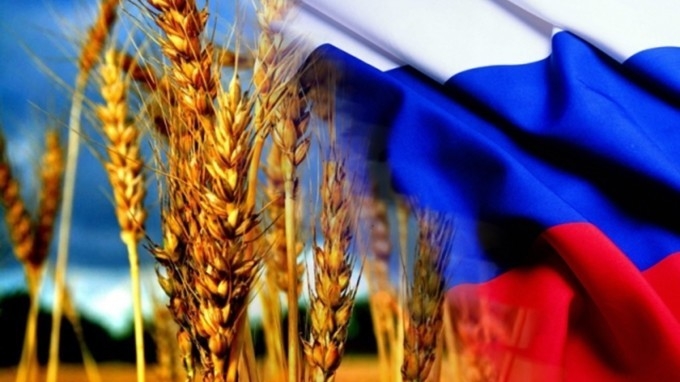Is money more important than existence, or why did EU countries increase grain imports from the Russian Federation by 10 times?

While Ukrainian farmers suffer from war, lost land, low prices and logistical problems, the Russian Federation is increasing grain supplies to the EU. In 2023, the import of Russian grain to the EU increased 10 times. So Latifundist.com decided to find out why Europe is increasing purchases from the Russian Federation and putting obstacles to Ukrainian grain.
During July-November 2023, the Russian Federation delivered 2.23 million tons of grain and leguminous crops to the EU (968 thousand tons for the same period in 2022), namely:
- to Spain – 850 thousand tons or 40% of deliveries to the EU (96 thousand tons for the same period in 2022),
- Italy – 812 thousand tons or 35% (105 thousand tons),
- Belgium – 198 thousand tons or 17% (52 thousand tons),
- Greece – 160 thousand tons (85 thousand tons),
- Latvia - 105 thousand tons (410 thousand tons).
During the specified period, Spain bought 571,000 tons of peas from the Russian Federation, Italy - 583,000 tons of durum wheat, Greece - 108,000 tons of wheat and 26,200 tons of corn, Belgium bought mostly flax.
The import of durum wheat from the Russian Federation increased by 300,000 tons in 9 months of 2023, and it became the second largest supplier of this product to Italy, as wheat yields decreased by 7.7% in Sicily, Apulia, and Emilia-Romagna. To avoid sanctions, deliveries from the Russian Federation are made through Turkey.
At the same time, Ukraine, which still remains the main supplier of grain to the EU, reduced its deliveries by 25% to 1.2 million tons during the year, while Brazil increased it to 1.1 million tons, and Turkey to 204,000 tons.
Europe introduced sanctions against the Russian Federation, but did not limit the import of its agricultural products. Grain arrives from the Russian Federation to the EU through the Baltic states and Belarus by dry truck. Two large Kaliningrad companies export grain in transit through the ports of Lithuania and have permission to transit through its territory. Taxes for them are paid by the Lithuanian freight forwarder. Next, the Lithuanian company buys grain, which it then sends to third countries. Lithuanian intermediaries and logistics companies participate in the scheme. Thus, the export of grain from the Russian Federation through Lithuania in 2023 grew from 15 to 21 million tons. According to a similar scheme, supplies through Latvia, which in 11 months of 2023 increased the import of grain from the Russian Federation by 51.5% from 219,959 to 333,225 thousand tons During this period, 1.975 million tons of Russian grain were transported in transit through Latvia, which is 2.3 times more than in 2022 (861,068 thousand tons). The country's authorities explain that goods that have passed the import procedure acquire the status of EU goods and have free circulation in the European Union.
Traders from the Russian Federation explain their success on the EU market with low prices for their grain, as they offer wheat 14-15 $/t FOB cheaper than European wheat. However, they consider the EU market situational and not interesting for them. Countries that imposed restrictions against the Russian Federation close their eyes when they see a possible economic benefit, since direct sanctions against the Russian Federation for the unleashed war on grain, as a food product, do not apply.
The Ukrainian Grain Association believes that for some European companies, economic expediency exceeds even the instinct of self-survival, although the number of such is relatively small.
Ukrainian farmers suffer huge losses due to the war. Prices are going down, in particular, as a result of active dumping supplies of grain from the Russian Federation to the world market. The warehouse and port infrastructure is destroyed, the cost of logistics has increased, freight through the ports of Greater Odessa has increased by $30/t, and deliveries through the ports of Romania or alternative routes - by $59/t and $112/t. Grain transportation is twice as expensive for Ukrainians as it is for Russians.
At the same time, for more than six months, Polish carriers and farmers have blocked the border with Ukraine, demanding restrictions on the import of Ukrainian grain. At the same time, they do not take into account the fact that the amount of grain that could get from Ukraine to Lithuania is much smaller than the amount of Russian grain that is supplied to third countries through the Baltic states.
On February 5, Latvian farmers protested against the import of food from the Russian Federation and Belarus, and promised to continue the strike in Riga on February 12.
European experts suggest solving the problem by market methods, in particular by reducing prices by sellers in the EU, which will create problems for the Russian Federation, which will be forced to either refuse supplies to the EU and maintain the minimum price, or lower it in order not to lose export volumes.


